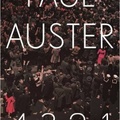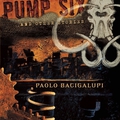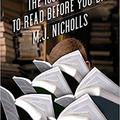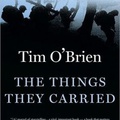John Fowles: The Collector
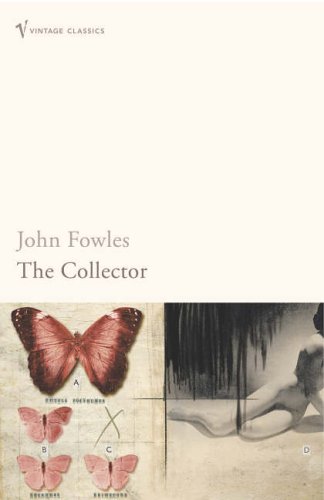
This has been one of my favourite novels since the time I was around sixteen, I have read it several times since then and I’ve been absolutely fascinated and overwhelmed by this book everytime I read it. Previously I always used to read it in translation, but during my latest re-reading I became seriously concerned about the language use of the novel and I couldn’t figure out whether the general slovenliness of the text had to do with the quality of the translation or it was an integral part of the text, so I decided that next time I was going to read the novel in English, which I did last year. But as it turned out I don’t really like this novel anymore as much as I did earlier.
The Collector tells the story of Frederick (Ferdinand) Clegg, a perfectly average young man who suddenly wins a fortune which enables him to buy a secluded house somewhere in the countryside and kidnap Miranda, the beautiful art student whom he has had a crush on for a long time. Ferdinand’s hobby is, by the way, the collection of butterflies, and for him Miranda too is only a beautiful specimen of a rare kind of butterfly – a thing he can own and admire for its beauty. Ferdinand doesn’t care about sex, it’s enough for him that he can have Miranda as his „guest” and in fact he grants all the girl’s wishes – except for her wish for freedom. The story is told first from Ferdinand’s point of view and then from Miranda’s, and then the two short chapters in the end are again told by Ferdinand.
And now about the things I still like in this novel and those I don’t like that much anymore.
First of all, I’m still fascinated by the narrative technique employed in the novel. Of course it’s no big deal to tell the same events from the points of view of two different characters, but I happen to be a sucker for books in which there is more than one narrator. It’s no big surprise that one advantage of this technique is that the reader gets to know two different interpretations of the same event: for instance, something Ferdinand considers to be a disgusting degradation of Miranda might in fact be a huge sacrifice from Miranda’s side.
Another interesting feature of the novel is that there is a huge social and cultural gap between Ferdinand and Miranda, consequently, they use two very distinct kinds of language and style, and for me only the linguistic and stylistic differences are enough to make it worth while to read the same things twice.
By the way, reading Ferdinand’s chapters, I realized that the Hungarian translation of the novel is not bad at all since Ferdinand really speaks in exactly the same cheap and ugly way as he does in the Hungarian translation. I often had to read Ferdinand’s sentences more than once to understand what he means because he uses such a coarse, almost disgusting English which makes it quite hard to grasp his meaning.
Anyway, despite the fact that as a hobby-linguist and an English language enthusiast I found it exceedingly interesting to observe the different language uses of Ferdinand and Miranda, what the author tried to suggest with their language use irritated me to a great extent. Yes, it’s quite obvious that Ferdinand is a coarse, working-class man while Miranda is a highly cultured, promising art student; yes, they had very different upbringings and education, but I consider the fact that it’s stated in the novel more than once that Ferdinand speaks the way he does because of his disadvantageous family background a bit too overt and spoon-feeding.
By the way, I didn’t get to like neither Ferdinand, nor Miranda. Ferdinand’s personality is quite simply shallow and disgusting, while Miranda is his diametrical opposite: she is a sophisticated, cultured, sensitive, well-read and artistic girl – and this irritated me almost as much as Ferdinand’s ugly person. Why? Because of the things she does. She indulges in an endless self-analysis, she keeps discovering herself in the books she reads, and she keeps daydreaming about her famous artist friend, G. P. and about the way she will give herself to him if she ever gets free. (Still, even though I don’t like such pampered, artistic personalities as Miranda, I must mention that her relentless optimism and her unbreakable will to live really touched me.)
Speaking of Miranda’s erudite and artistic personality, let me add that the novel abounds in literary parallels and lovely intertextual references – and this is the reason why I keep calling Frederick by the name of Ferdinand. At the beginning of the story, Frederick introduces himself as Ferdinand to Miranda, and from that moment on the girl keeps comparing their relationship with the relationship of Miranda and Ferdinand in Shakespeare’s The Tempest, and keeps contemplating the fact that her captor is more like Caliban than Ferdinand. Besides the several explicit references to The Tempest, the novel also mentions several novels by Jane Austen, The Catcher in the Rye by J. D. Salinger, and Saturday Evening, Sunday Morning by Alan Sillitoe.
I happen to be a great fan of every kind of intertextuality and I love literary references in a novel, so the fact that The Collector is such an explicitly literary novel used to please me immensely in the past. But now it doesn’t please me so much anymore. Because for me nowadays real pleasure lies in finding a small, relatively hidden reference in a novel, and not in collecting such obvious references as those abundant in The Collector. I mean, if the heroine of a novel directly states while reading Jane Austen that sometimes she feels just like Emma, and sometimes like Marianne, then it’s no big deal to notice the literary parallels. For my current tastes, what Fowler does in this novel is too direct, too obvious.
And in order to be like Miranda and reflect upon myself let me just add that it’s quite an interesting experience for me to re-read a novel I used to love, and measure how my tastes have changed and realize what I consider important in a novel. If this had been the first time I read The Collector, I’m pretty sure it wouldn’t have become one of my favourite novels. But as it is, I still like it pretty well, even if my liking for it is mostly based on my previous readings and the last two parts, which still shock me thoroughly – just as they used to shock me everytime in the last ten years.

